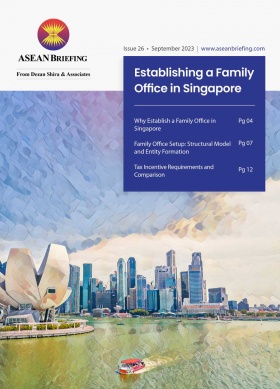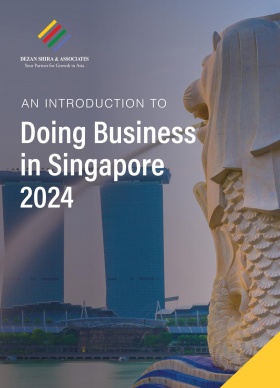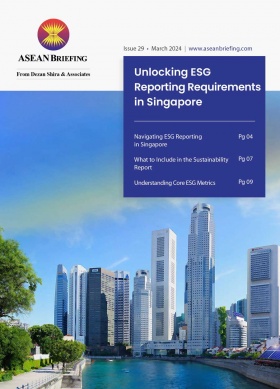Proposed Amendments to Singapore’s Income Tax Act
Learn about key changes proposed in Singapore’s draft Income Tax (Amendment) Bill 2024, impacting trusts, funds, and REITs.
Singapore’s Ministry of Finance initiated a public consultation on the draft Income Tax (Amendment) Bill 2024, which proposes several important changes to the Income Tax Act 1947 (ITA). These amendments aim to strengthen the alignment of Singapore’s tax laws with national policy objectives, enhance tax clarity, and simplify tax administration.
The updates include new tax incentives for trusts and sovereign funds, adjustments to Real Estate Investment Trust (REIT) tax treatment, and administrative relief for small businesses.
Key amendments impacting the asset management sector
Several proposed amendments are particularly relevant for the asset management sector, including extensions to key tax incentive schemes and clarifications on tax treatment.
Extended tax incentives for trusts and foreign accounts
The tax reliefs for foreign trusts, locally managed trusts, and foreign philanthropic purpose trust accounts, covered under Sections 13F, 13L, and 13N, will continue until 31 December 2027. Additionally, foreign-sourced income from locally administered trusts will be fully tax-exempt once the amendments are enacted.
Extension and enhancement of tax incentive scheme for sovereign funds
The tax incentive scheme for sovereign funds, governed by Section 13V, will now extend until 31 December 2029. Moreover, the scheme will now cover funds owned by multiple foreign governments, a change retroactively effective from 7 February 2024.
Clarification of tax treatment for REIT manager units
The draft bill clarifies how Real Estate Investment Trust (REIT) units, received by REIT managers as part of their management fees, are taxed.
When REIT managers use these units as compensation for employees or directors, the tax deduction will be based on the market value of the units at the time they were initially received. This will apply starting from the Year of Assessment (YA) 2026.Streamlining tax filing for small businesses
To ease the tax filing process for smaller businesses, a waiver of the Estimated Chargeable Income (ECI) requirement has been proposed for sole proprietors and partnerships. This waiver will apply from YA 2026 through YA 2030, significantly reducing the administrative burden for these taxpayers.
Amendments to the philanthropy tax incentive scheme for family offices
The draft bill also includes clarifications and adjustments to the tax deductions provided under the philanthropy tax incentive scheme (PTIS), particularly for companies subject to different tax rates.
Apportionment and adjustment of tax deductions
Under the revised PTIS, tax deductions will be distributed between income taxed at different rates, based on an apportionment method deemed reasonable by the Comptroller of Income Tax.
Set-off of unabsorbed deductions
Any unabsorbed deductions can be offset against income taxed at a different rate. An adjustment factor, in line with Section 37A of the ITA, will be applied to ensure proper alignment.
Conclusion
These proposed amendments to the Income Tax Act reflect Singapore’s ongoing commitment to maintaining a competitive, transparent, and business-friendly tax environment. By extending key tax incentives, providing greater clarity in tax regulations, and reducing administrative burdens, the government ensures that Singapore remains an attractive destination for asset management, foreign investment, and philanthropic initiatives.
About Us
ASEAN Briefing is one of five regional publications under the Asia Briefing brand. It is supported by Dezan Shira & Associates, a pan-Asia, multi-disciplinary professional services firm that assists foreign investors throughout Asia, including through offices in Jakarta, Indonesia; Singapore; Hanoi, Ho Chi Minh City, and Da Nang in Vietnam; besides our practices in China, Hong Kong SAR, India, Italy, Germany, and USA. We also have partner firms in Malaysia, Bangladesh, the Philippines, Thailand, and Australia.
Please contact us at asean@dezshira.com or visit our website at www.dezshira.com and for a complimentary subscription to ASEAN Briefing’s content products, please click here.
- Previous Article Enhanced Family Benefits and Retrenchment Support for Employees in Singapore
- Next Article Key Changes in Indonesia’s Franchise Laws








